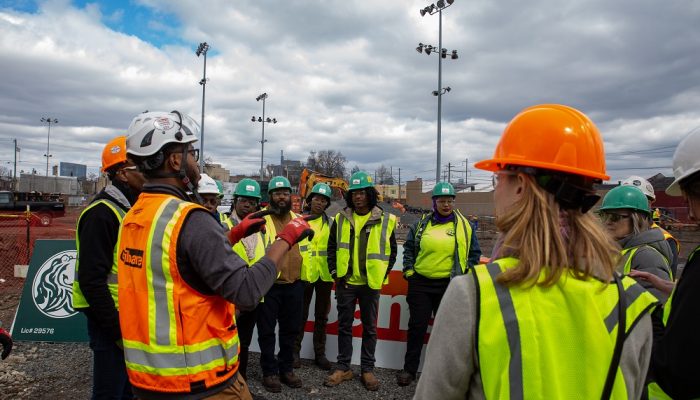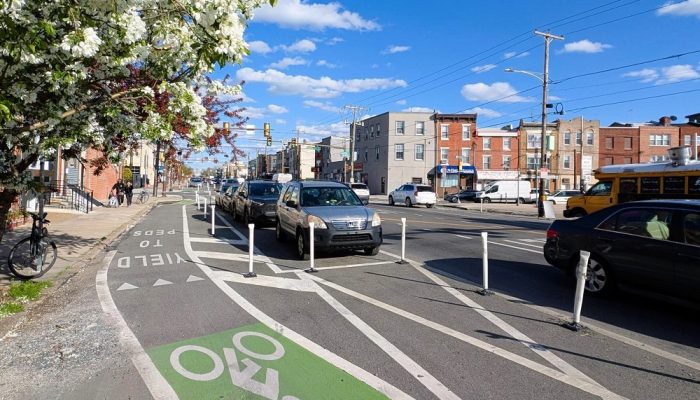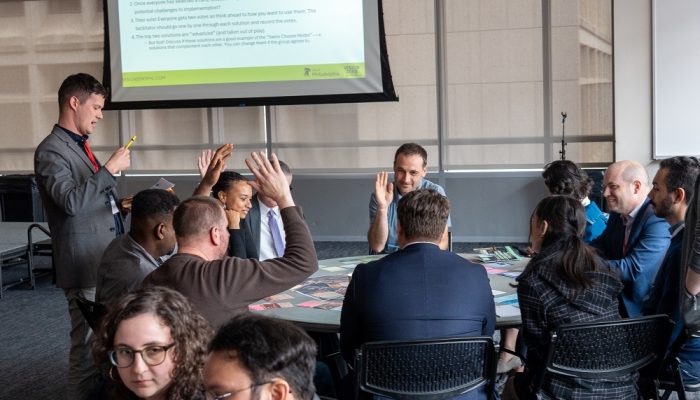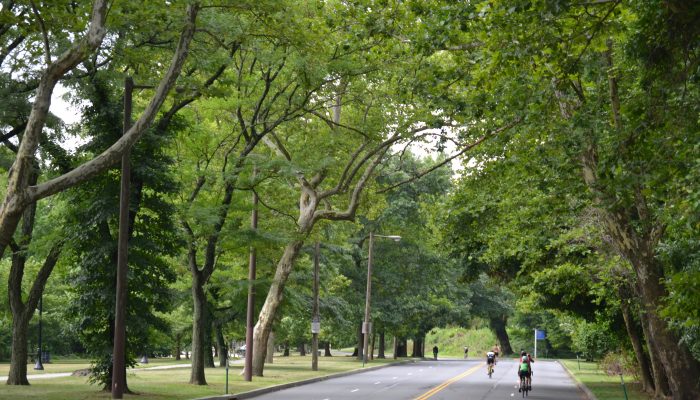Since 2021, the City has been getting ready for more construction projects thanks to increased funding from the federal Bipartisan Infrastructure Law (BIL). So far, the City has been awarded around $350 million in grant funding from the BIL.
In 2022, the City established the Infrastructure Solutions Team (IST) to make the most of the opportunities provided by the BIL. This law provides a significant amount of funding to improve the City’s infrastructure and boost economic opportunities for everyone who lives and works here. The IST’s main goal is to ensure that these federal investments help create stability and prosperity for Philadelphians, with a focus on people of color who have historically been excluded from opportunity.
What’s the plan?
The City has increased its coordination and staff capacity to increase the chances of winning grants and funding. City teams have been working hard to obtain funds, and the IST has outlined three goals to ensure fair and equitable use of infrastructure funding.
Goal 1: Secure $1B in federal BIL funding to build Philadelphia infrastructure
To date, the City has been awarded around $350 million in grant funding from the BIL, comprising a mix of discretionary grants and formula dollars. There are two main types of grants: discretionary and mandatory (or formula). Discretionary grants permit an agency to exercise judgment in selecting recipients through a competitive grant process. Mandatory grants are required to be awarded if the recipients meet certain predetermined conditions. Multiple City departments and agencies have been diligently pursuing funding opportunities and pinpointing essential projects that can now come to life with BIL grant programs.
Goal 2: Ensure that infrastructure workers, from planning to construction, look more like the population of Philadelphia
Since January 2021, the White House reports a nationwide increase of 37,600 jobs in highway, street, and bridge construction industry following the enactment of the BIL. To meet the workforce demands of projects funded by BIL, Philadelphia’s infrastructure sectors will need more skilled workers for vital roles. This represents a significant opportunity for Philadelphians, especially workers of color, to secure well-paying, family-sustaining jobs, including union jobs.
Meaningful training opportunities, combined with hands-on experience, are facilitated through quality pre-apprenticeship and workforce development programs. Some successful initiatives we are looking to grow in 2024:
- Rebuild: This City initiative offers full-time paid training programs designed to create new pathways for people of color and women to enter skilled trade union apprenticeships.
- PennDOT’s On-the-Job Training Program (OJT): This program provides training and supportive services for underserved and disadvantaged workers, aiding their progress in highway construction trades.
- Philadelphia Works Inc.’s Good Jobs Challenge: This initiative aims to connect more than 3,000 job seekers across Southeastern PA to quality jobs between September 2022 and September 2025. Philadelphia Area Labor Management Committee (PALM) is leading the effort for infrastructure jobs.
Goal 3: Increase participation of historically underutilized businesses (HUBs) on City contracts including greater participation as primes
Federally funded projects utilize the Disadvantaged Business Enterprise (DBE) program, requiring contracting agencies to establish DBE participation goals. For projects funded using non-federal dollars, the City’s Office of Economic Opportunity (OEO) sets goals to reach diverse business participation. This is accomplished through its registry of minority, woman, or disabled-owned business enterprises (M/W/DSBE). The citywide goal is to allocate 35% of City contracts to M/W/DSBEs. Although both the DBE and M/W/DSBE programs support historically underutilized businesses (HUBs), they are distinct initiatives with their own certification requirements.
To register or discover M/W/DSBE businesses in the City, please visit the OEO department webpage. Additionally, for more information on DBE certification, visit the ProRank Business Solutions webpage and PennDOT’s DBE Supportive Services webpage. By participating, your business can increase chances for government contract opportunities, and you can receive advisory support on securing contracts.
The City is taking action to support the growth of diverse businesses in industries that participate in Public Works projects through various tools and initiatives:
- In October 2023, the City collaborated with the Conference of Minority Transportation Officials (COMTO) to organize the Infrastructure Mixer: A Public Works Networking Event. The event specifically welcomed minority-owned and women-owned businesses to connect with established public works owners and prime contractors in the region. The occasion marked the introduction of the City’s Public Works Procurement Forecast, outlining over 300 anticipated public works contract opportunities.
- Three nonprofits – Urban League of Philadelphia, Economy League of Greater Philadelphia, and The Enterprise Center – are collaborating with the City of Philadelphia to establish Supply Philly. This initiative is designed to offer wide-ranging technical assistance to support minority companies in preparing for the anticipated increase in federal funding. The goal is to develop a scalable program that assists a broader range of companies in preparing for public works contracting.
Which projects is the City prioritizing?
In the first and second years of the BIL, the City has been awarded new grants and financing, including:
- $179.8 million allocated to the Department of Streets and Office of Transportation, Infrastructure, and Sustainability (OTIS) for streets, sidewalks, intersections, and safety upgrades to transportation infrastructure.
- $92.5 million allocated to the Department of Aviation in formula funding for projects related to runways, taxiways, safety and sustainability, terminal improvements, airport-transit connections, and roadway enhancements.
- $54 million allocated to the Department of Aviation for terminal and restroom upgrades to PHL Airport.
- $700 million in the form of low-interest loans to Philadelphia Water Department (PWD) for upgrading water, sewer, and stormwater services.
- $97 million for essential water infrastructure, resilience initiatives, and clean energy projects.
BIL funding will build transportation projects, including bridges and streets, along with initiatives in climate, energy, and the environment. Here are some key highlights:
- The Martin Luther King Bridge Project is entirely funded through federal formula dollars. This project involves rehabilitation work both the bridge’s superstructure and substructure. Additionally, it includes tasks such as the painting of the steel girders, roadway approach work, street lighting enhancements, and implementation of ADA curb ramps.
- The North Philadelphia School Zones Traffic Safety Project will construct multimodal enhancements, improve accessibility, and enhance mobility around six schools and high injury corridors.
- Safety Investments for Roosevelt Boulevard will enhance 12.3 miles of roadway from North Broad Street to the Bucks County line. The project will construct intersection and roadway reconfigurations and improve accessibility for people walking, biking and taking transit.
- The Philadelphia Digital Right-of-Way and Mobility (ROW) Improvements Project will test leading-edge technologies to manage the ROW digitally and improve the experience of everyone using the streets.
- The Chinatown Stitch Project seeks to reconnect the Chinatown neighborhoods by capping the Vine Street Expressway between Broad Street and 8th Street. This initiative aims to foster equitable mixed-use development opportunities and provide inclusive mobility options.
In 2024, look for the release of the Infrastructure Solutions Team Report, providing a full list of BIL investments in Philadelphia, complete with project highlights.




